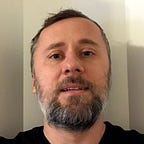An Open Source Approach to Ending Polio in Nigeria — Data is one of the most powerful tools we have in the fight against polio in Nigeria.
Together, UNICEF, community leaders, local governments, and the Global Polio Eradication Initiative (GPEI) are using data to shape Nigeria’s vaccination program. Data allows decision makers to better understand the status of immunization efforts, track the number of children in the immunization program, and identify problems that need to be addressed.
The GPEI in Nigeria uses an open source platform, the Open Data Kit (ODK), to collect data in the field and track it in real time. ODK is a mobile toolkit for Android phones that can be used to collect and distribute information. Data collected can then be analysed, displayed on maps, illustrated in charts and graphs, or interpreted in other ways.
ODK has become a powerful tool used by countless organizations to enhance their programs. The U.S. Centers for Disease Control are using ODK to help activists in Kenya track the spread of malaria. In Bolivia, the Red Cross uses ODK to monitor cases of Zika and other diseases. Volunteers with the Jane Goodall Institute use ODK to track deforestation in the jungles of Tanzania. In Albania, civic organizations used ODK to monitor the nation’s 2017 elections for fraud.
The use of ODK to monitor Ebola outbreaks in western Africa demonstrates the software’s potential. Following the outbreak in 2014, a coalition of NGOs distributed 10,000 mobile phones with ODK to government employees and humanitarian aid volunteers. When aid workers identified a potential Ebola carrier, the person’s vital signs and GPS location were recorded using ODK. If symptoms of Ebola developed, the software issued an alert to nearby response teams to prompt an evacuation plan. ODK helped to identify and contain local outbreaks before they could spread.
ODK’s power as a tool comes largely from the fact that the software is open source. Open source software is built on the philosophy that knowledge should be openly available. As a result, no single person or company owns ODK — it belongs to everyone and is free to use. Organizations can rewrite the software to meet their specific needs. The software evolves organically because any programmer can make improvements or add new features and then submit them to be included in future versions.
This open source model makes ODK a particularly powerful tool for solving public health issues. Its flexibility and low cost makes it ideal for NGOs and governments, which often need to implement solutions quickly and cheaply. In addition, as a mobile platform, ODK is easy to deploy in parts of the world where computers and internet networks are not widely available. With just a cell phone, volunteers and staff can be empowered to monitor local health threats and share information with each other.
In Nigeria, the GPEI has provided a network of thousands of community health workers, called Volunteer Ward Supervisors (VWSs), with mobile phones and trained them to use ODK tools to collect data from local volunteers. This allows local, regional, and national managers to see data in real time. During outreach campaigns, the GPEI holds daily Emergency Operation Centre meetings to review the latest updates and make informed decisions. The data allows them to track vaccination totals, plan vaccination drives, monitor outbreaks, and allocate vaccine supplies.
While mobile technology is essential to the GPEI’s efforts, it does have its challenges. Cell phone coverage is still unavailable in some parts of Nigeria, especially in Borno in the northeast. In addition, many local volunteers are not literate, which means they can only enter their data into ODK with the assistance of a helper, usually one of their children. Volunteers are also prone to making mistakes when entering information, which can undermine the data. Eventually, this problem might be solved with machine learning, which could catch errors and help volunteers fix them.
Despite these obstacles, ODK is fostering innovation and changing the way that public health programs operate.
